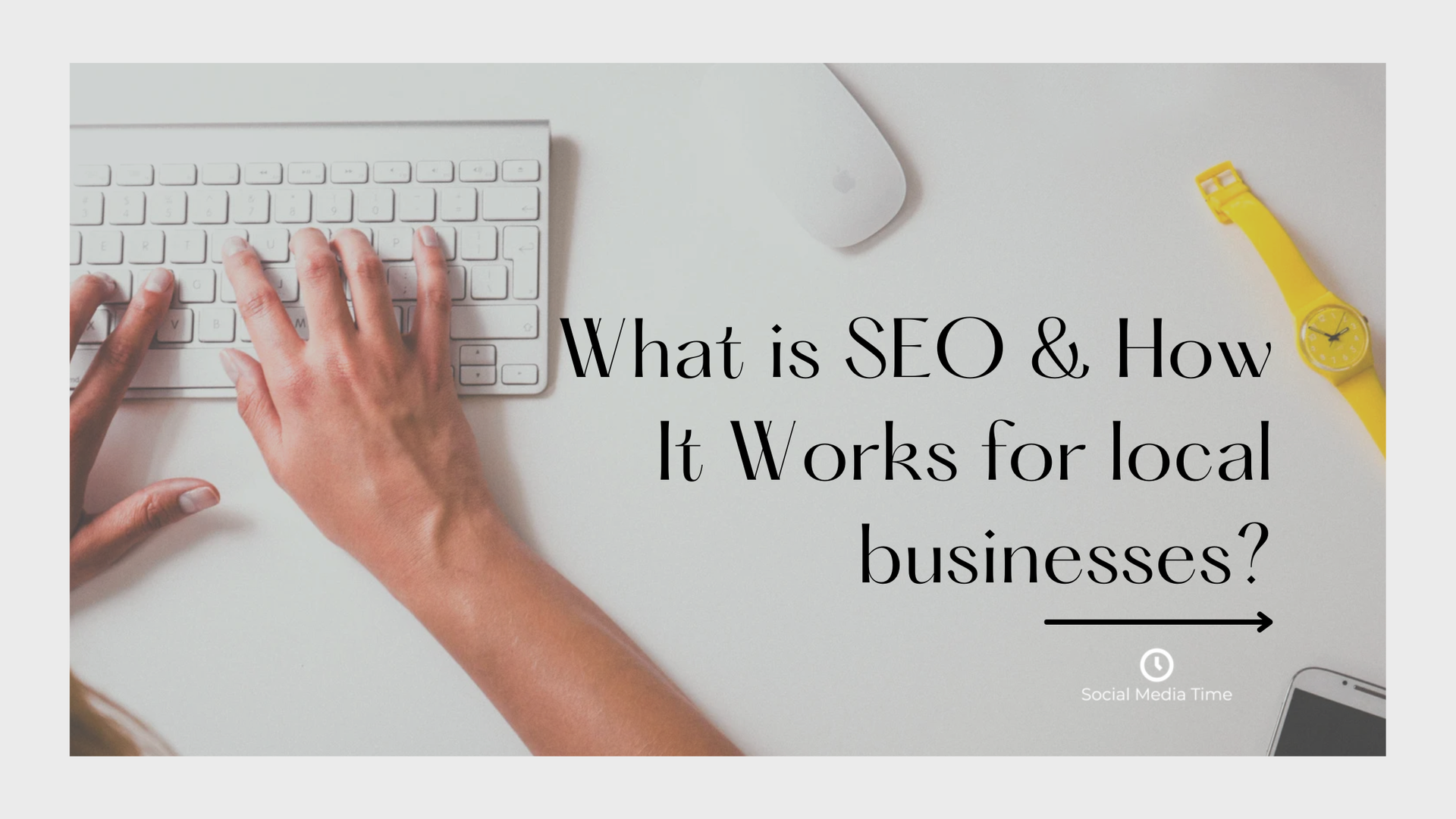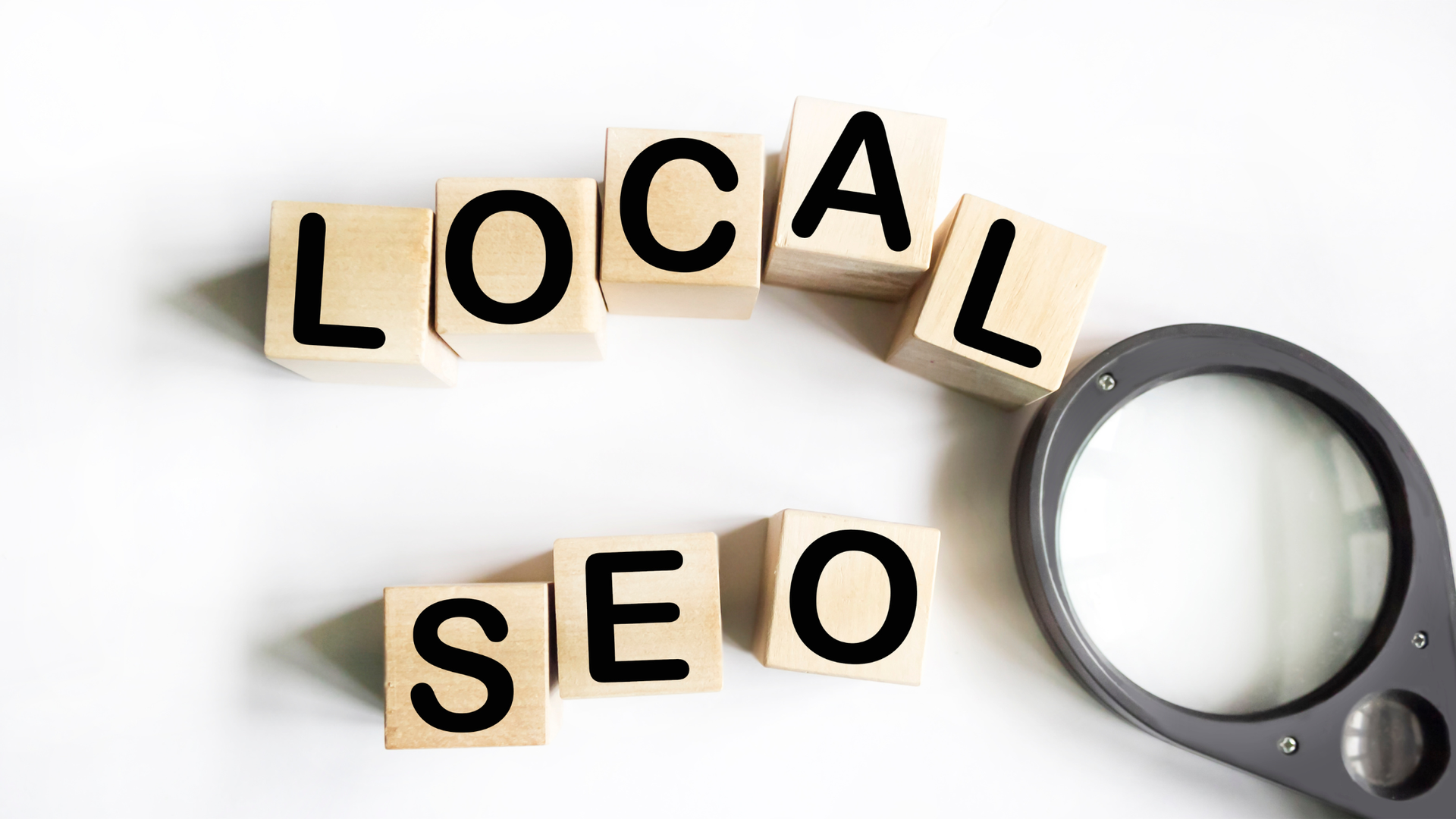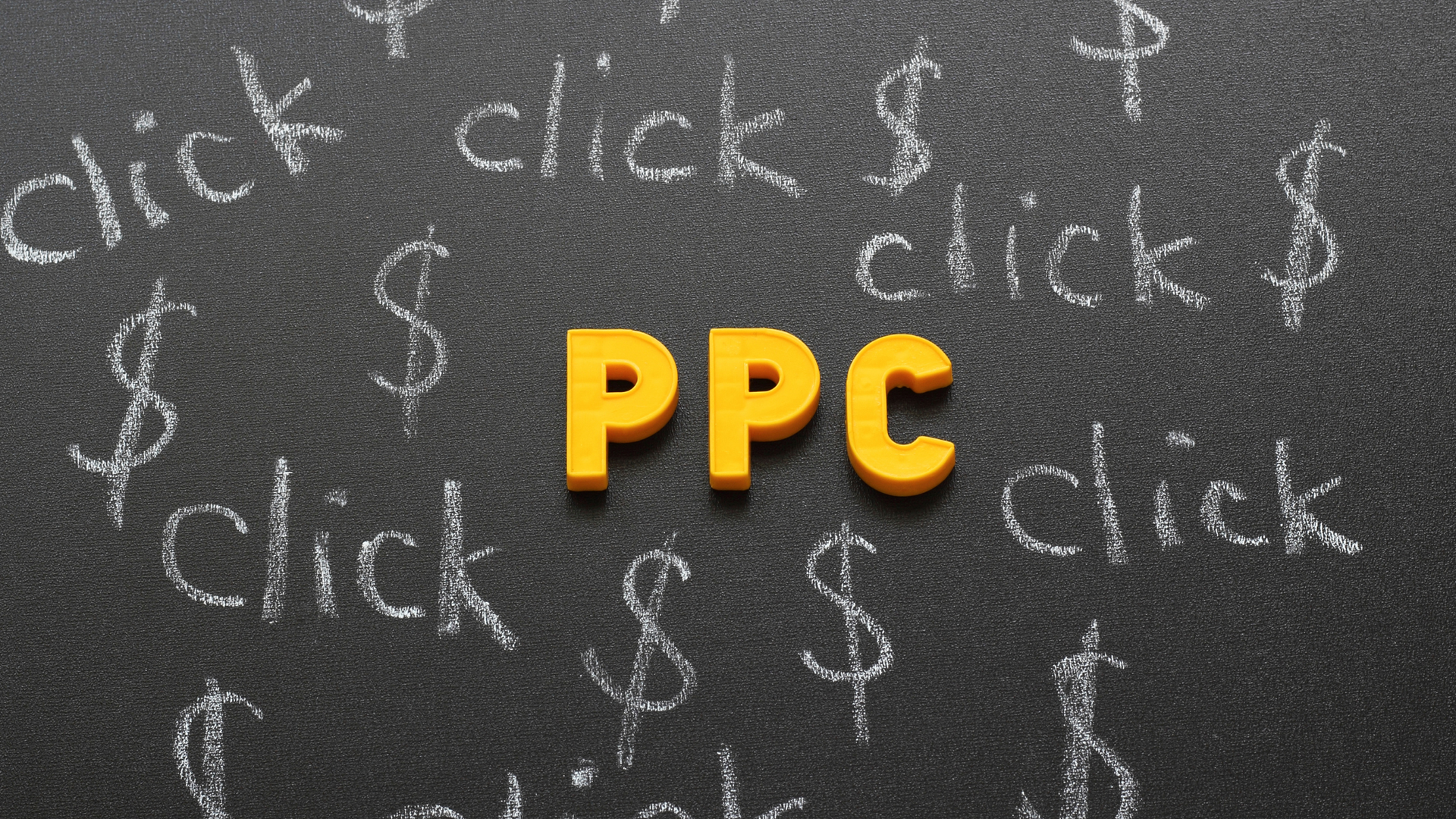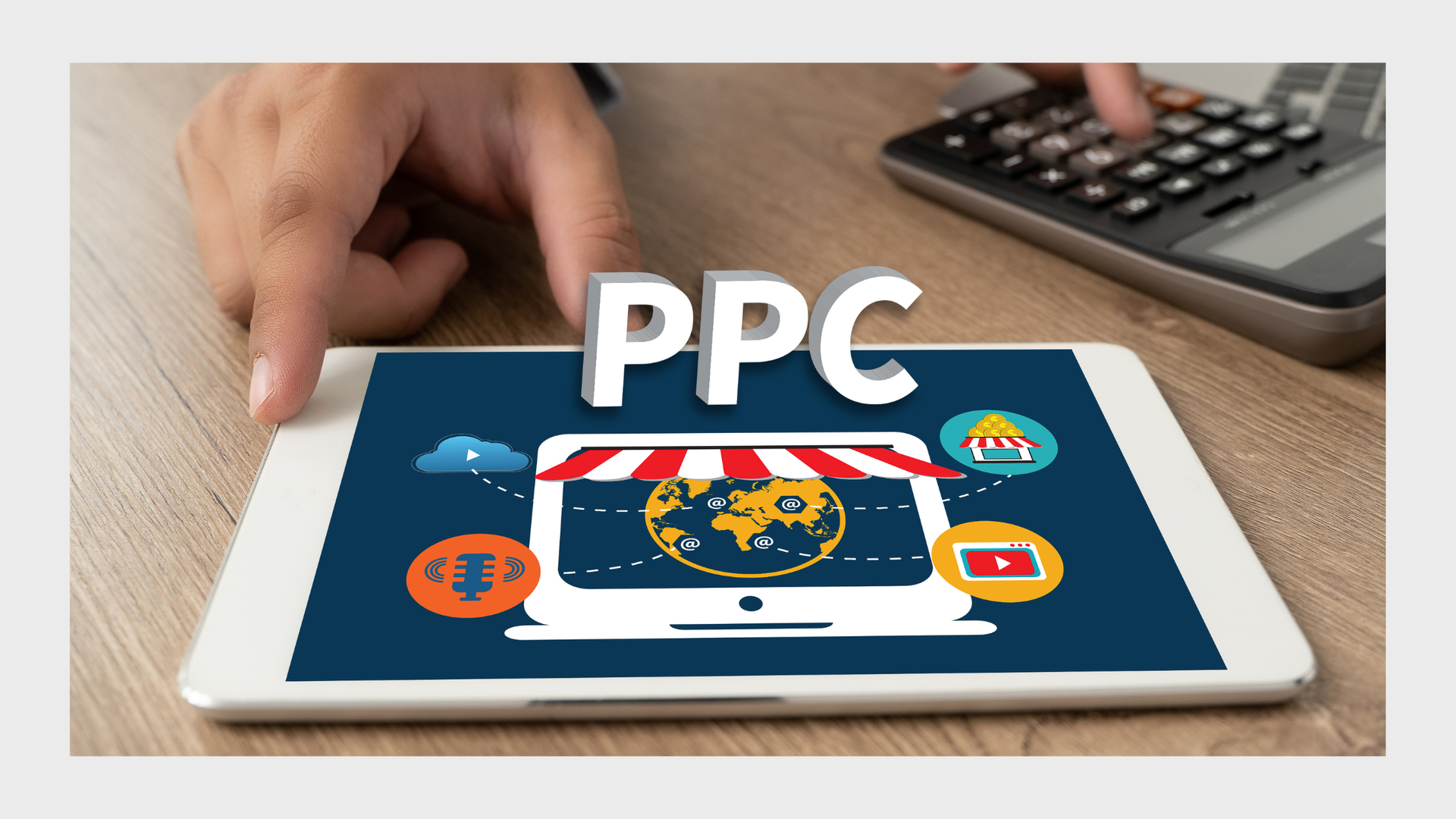What is SEO & How It Works for local businesses?
As the founders of Social Media Time, a digital marketing agency specialising in social media sites and local business promotion, we understand the importance of Search Engine Optimisation (SEO) for businesses operating within specific geographic regions. In today's digital age, where customers increasingly search online for local services and products, having a strong local search presence is crucial for attracting potential customers to your business.

How SEO Works for Local Businesses?
In this comprehensive blog post, we'll dive deep into the world of SEO and explore how it works specifically for local businesses. We'll cover everything from understanding the basics of SEO to implementing effective local SEO strategies that can drive more traffic, leads, and ultimately, revenue for your business.
Understanding SEO: The Backbone of Online Visibility
SEO, or Search Engine Optimisation, is the process of optimising your website and online presence to rank higher in search engine results pages (SERPs) for relevant keywords and queries.
When users search for products, services, or information on search engines like Google, the search engine's algorithm evaluates numerous factors to determine the most relevant and authoritative websites to display in the search results.
By implementing effective SEO strategies, you can improve your website's visibility, making it easier for potential customers to find your business when they search online.
This increased visibility can lead to more website traffic, higher engagement, and, ultimately, more sales and revenue for your business.
The Power of Local SEO for Local Businesses

While traditional SEO is essential for any business with an online or social media presence, local SEO takes it a step further by optimising your online presence specifically for local search results.
Local SEO focuses on improving your visibility in search results for queries with local intent, meaning searches that include a specific geographic location or phrase like "near me."
When a user searches for a local business, product, or service, search engines like Google prioritise relevant local results based on the user or search bar's location and the proximity of the business to the searcher.
This is where local SEO comes into play, helping local businesses rank higher in these localised search results.
Here are some key reasons why local SEO is crucial for local businesses:
1. Increased Visibility in Local Search Results

By optimising multiple location pages on your online presence for local SEO, you improve your chances of appearing in the coveted "local pack" or "map pack" results, which are the top listings displayed in local searches. This increased visibility can drive more relevant traffic to your website and physical location.
Getting featured in the local pack can be a game-changer for local businesses. These prominent local listings often include your business name, address, phone number, website link, ratings, and even photos or videos. This level of visibility can significantly increase click-through rates and drive more qualified leads directly to your business.
2. Targeting Local Customers

Local SEO helps you target customers in your specific geographic area, ensuring that your business is visible to those who are most likely to become paying customers. This targeted approach can lead to higher conversion rates and a better return on investment (ROI) for your marketing efforts.
When someone searches for a local service or product, they typically have a higher intent to make a purchase or visit the business location.
By ranking well for these local searches, you can connect with customers who are actively seeking what you offer, increasing the chances of converting them into paying customers.
3. Competitive Advantage
Many local businesses overlook the importance of local SEO, giving you an opportunity to gain a competitive edge over those who haven't optimised their online presence for local searches.
By implementing effective local SEO strategies, you can outrank competitors and capture a larger share of the local market.
Even if your competitors are larger or more established, a well-executed local SEO strategy can help level the playing field.
By appearing prominently in local organic search results, you can attract customers who may have otherwise gone to your competitors simply because your business was more visible and accessible during their online search.
How Local SEO Works? Key Ranking Factors

Now that we've established the importance of local SEO for local businesses, let's dive into how it actually works and the key ranking factors that search engines like Google consider when determining local search rankings.
1. Google My Business Optimisation

One of the most critical components of local SEO is optimising your Google My Business (GMB) listing. GMB is a free tool offered by Google that allows businesses to manage their online presence across Google's various platforms, including Maps and local search results.
By claiming and verifying your GMB listing, you can provide accurate and up-to-date information about your business, such as your name, address, phone number (NAP), business hours, website, and more.
Additionally, you can upload photos, respond to customer reviews, and even create posts on social media pages to engage with your local audience.
Optimising your GMB listing with complete and accurate information is crucial for local SEO, as Google heavily relies on this data to determine the relevance and page authority amount of your business for local searches.
2. On-Page SEO Elements
In addition to your GMB listing, search engines also evaluate various on-page SEO elements on your own website to determine your local search rankings. These elements include:
Relevant Keywords: Incorporating relevant local keywords, such as your city or region, into your website's content, titles, meta descriptions, and other on-page elements can signal to search engines that your website is relevant for local searches.
NAP Consistency: Ensuring that your business name, address, and phone number (NAP) are consistent across your website, GMB listing, and other online directories and citations is essential for local SEO. Inconsistencies can confuse search engines and negatively impact your local rankings.
Local Content: Creating high-quality, locally relevant content can significantly boost your local SEO efforts. This can include blog posts, service pages, or even dedicated location pages for businesses with multiple locations.
Local Business Schema Markup: Schema markup is a structured data format that helps search engines better understand the content on your website. By implementing local business schema markup, you can provide additional context about your business, such as your address, operating hours, and more, making it easier for search engines to display this information in rich snippets or knowledge panels.
3. Local Citations and Listings

Local citations and listings refer to online directories, review sites, local directories, and other platforms where your business's Name, Address, and Phone number (NAP) information is listed.
These citations act as digital signals to search engines, helping them verify the legitimacy and prominence of your business in a specific location.
Some popular local business directories and listing sites include Yelp, Yellow Pages, Foursquare, and industry-specific business directories themselves. Ensuring that your business information is accurate and consistent across these platforms is crucial for local SEO success.
Consistency is key when it comes to local citations. Search engines use these listings to cross-reference and validate your business information, so any discrepancies or inconsistencies can be seen as a red flag and potentially harm your local rankings.
4. Local Link Building

Link building has long been an essential component of traditional SEO, and it plays an equally important role in local SEO. In the context of local SEO, link building involves acquiring high-quality backlinks from locally relevant websites, such as local blogs, web pages, directories, or community sites.
These local backlinks act as "votes of confidence" from other reputable sources, signalling to other search engines that your business is credible and relevant within your local community.
However, it's important to focus on acquiring high-quality, relevant backlinks rather than engaging in spammy or unethical link-building practices, which can result in penalties from search engines.
One effective way to build local links is by partnering with other local businesses or organisations for cross-promotion or content collaboration with local sites. For example, you could write a guest post for a local blog, participate in a local event or charity, or sponsor a local sports team or organisation.
These types of activities not only help you build valuable local links but also increase your brand's visibility and reputation within the local community.
5. Local Reviews and Ratings

In today's digital age, customer reviews and ratings play a significant role in local search rankings. Search engines understand that positive reviews and high ratings are a strong indication of a business's credibility and quality of service.
Encouraging your customers to leave honest reviews on platforms like Google My Business, Yelp, and industry-specific review sites can help improve your local search visibility.
Additionally, responding to customer reviews (both positive and negative) in a professional and timely manner can further demonstrate your commitment to excellent customer service.
Positive reviews and high ratings can also influence click-through rates and conversion rates. When potential customers see that your business has numerous positive reviews and a high overall rating, they are more likely to click through to your website or visit your physical location, as it instils trust and confidence in your services or products.
6. Mobile-friendliness and Website Speed
With an increasing number of local searches being conducted on mobile devices, it's crucial to ensure that your website is mobile-friendly and offers a seamless user experience. Search engines prioritise mobile-friendly websites in their rankings, as they aim to provide the best possible experience for users, regardless of the device they're using.
A mobile-friendly website not only improves user experience but also signals to search engines that your business is keeping up with modern web standards and practices. This can positively impact your local mobile search and rankings, as well as your overall online visibility.
Furthermore, website speed is another important ranking factor for local SEO. Slow-loading websites can negatively impact user experience and result in higher bounce rates, which can hurt your local organic search results and rankings.
Optimising your website for speed and performance can help improve your visibility in local search results and provide a better overall experience for your potential customers.
Implementing an Effective Local SEO Strategy
Now that we've covered the key ranking factors for local SEO let's discuss how to create and implement an effective local SEO strategy for your business.

1. Conduct Local Keyword Research
The foundation of any successful SEO strategy, including local SEO, is thorough local keyword research first. Start by identifying the relevant local keywords and search queries that your target audience is using to find businesses like yours in your local area.
Tools like Google Keyword Planner, Google Trends, and SEMrush can help you uncover popular local keywords, as well as their search volume and competition levels. Additionally, consider using location-specific modifiers like "near me," "in [city]," or "[service] + [city]" to target local searchers more effectively.
2. Optimise Your Google My Business Listing
As mentioned earlier, your Google My Business listing is a critical component of local SEO. Ensure that your listing is complete, accurate, and optimised with relevant information, such as your business name, address, phone number, business hours, website URL, and category.
Additionally, encourage your customers to leave reviews on your GMB listing, as positive reviews can significantly improve your local search rankings and attract more potential customers.
3. Optimise Your Website for Local SEO

Once you've identified your target local keywords, it's time to optimise your website's content and structure for local SEO. Here are some key steps to follow:
- Incorporate local keywords naturally into your website's content, titles, meta descriptions, and other on-page elements.
- Create locally relevant content, such as blog posts, service pages, or location-specific landing pages.
- Implement local business schema markup to provide search engines with additional context about your business.
- Ensure NAP consistency across your website, GMB listing, and other online directories and citations.
- Optimise your website for mobile-friendliness and fast loading speeds.
4. Build Local Citations and Links
- Building local citations and high-quality backlinks from locally relevant websites is crucial for improving your local search visibility and establishing your business as a trusted and authoritative source within your community.
- Start by claiming and optimising your business listings on popular online directories like Yelp, Yellow Pages, and industry-specific directories. Ensure that your NAP information is consistent across all these listings.
- Next, focus on building local backlinks by engaging with local communities, partnering with other local businesses or organisations, and creating locally relevant content that other websites may find valuable and link to.
5. Monitor and Adjust Your Strategy
- Local SEO is an ongoing process, and search engine algorithms are constantly evolving. Therefore, it's essential to regularly monitor your local search performance and adjust your strategy accordingly.
- Use tools like Google Search Console and Google Analytics to track your website's visibility in local search results, monitor your keyword rankings, and analyse user behaviour and engagement metrics. Additionally, keep an eye on your competitors' local SEO efforts and stay updated with the latest local SEO trends and best practices.
- By continuously monitoring and refining your local SEO strategy, you can ensure that your business remains visible and competitive in local search results, attracting more potential customers and driving growth for your business.
What is SEO? How it Works for Local Businesses – The Key to Local Success

Local SEO is a powerful tool for businesses looking to attract more customers from their surrounding areas. By optimising your online presence for local search, you can increase your visibility, target local customers with high purchase intent, and gain a competitive advantage over businesses that overlook the importance of local SEO.
At Social Media Time, we understand the intricacies of local SEO and have helped numerous businesses in various industries succeed in their local markets. Whether you're a small local business or a multi-location enterprise, our team of experienced SEO professionals can develop and implement a tailored local SEO strategy to help you achieve your business goals.
Don't let your business miss out on the vast opportunities that local SEO presents. Contact us today to schedule a consultation and take the first step towards dominating your local search results.
FAQs
Q1. What is local SEO, and why is it important for businesses?
Local SEO, or local search engine optimisation, is the process of optimising your online presence to rank higher in search results for queries with local search intent only, such as "plumbers near me" or "restaurants in [city]."
It is crucial for businesses that serve specific geographic areas, as it helps them get found by potential customers searching for local products or services in their vicinity. By ranking well in local search results, businesses can increase their visibility, attract more relevant traffic, and ultimately drive more sales and revenue.
Q2. What are the key ranking factors for local SEO?
- Optimising your Google My Business listing with accurate business information, photos, and reviews
- Including relevant local keywords and location-specific content on your website
- Building local citations and consistent business listings across online directories
- Acquiring high-quality backlinks from locally relevant websites
- Ensuring your website is mobile-friendly and has fast loading speeds
- Encouraging and responding to customer reviews on platforms like Google My Business and Yelp
Q3. How can I optimise my Google My Business listing for local SEO?
- Claim and verify your GMB listing to ensure accurate business information
- Include your complete name, address, phone number (NAP), business hours, website, and category
- Upload high-quality photos of your business, products, or services
- Encourage customers to leave reviews on your GMB listing
- Respond professionally to all reviews, both positive and negative
- Utilise the "Posts" feature to share updates, offers, or events with your local audience
Q4. What are some effective local link-building strategies?
- Partnering with other local businesses or organisations for cross-promotion or content collaboration
- Writing guest posts for local blogs or news outlets
- Sponsoring or participating in local events, charities, or community initiatives
- Getting listed on locally relevant online directories and citation sources
- Encouraging happy customers to leave reviews on third-party sites like Yelp or industry-specific platforms, which can generate backlinks










